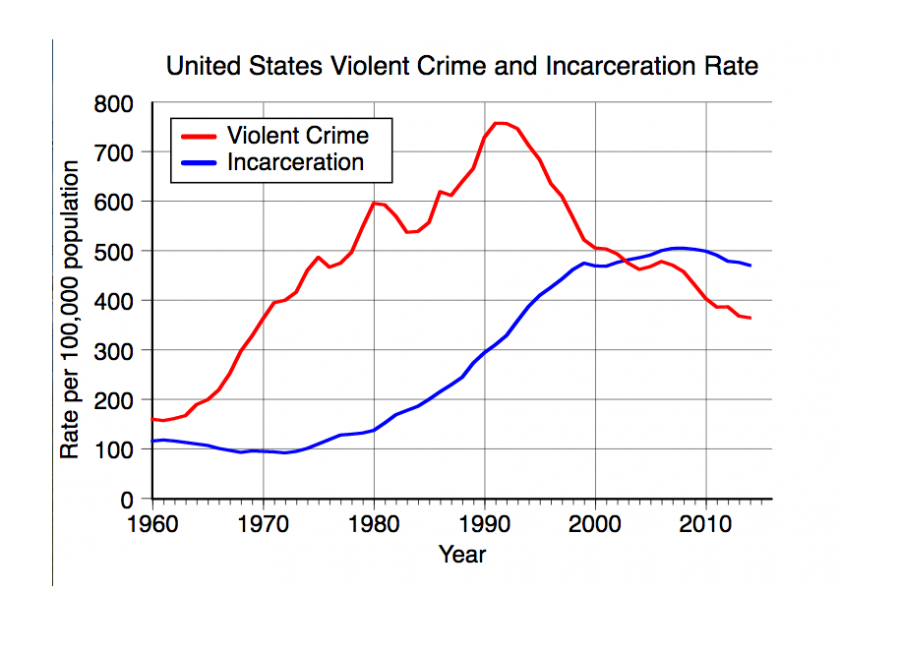“We have roughly 2.2 million people incarcerated currently, and millions more Americans who are swept up in a sort of correctional control,” Dr. Edmund Fong, a researcher from the U, stated while kicking off the U’s Criminal Justice, Policing, and Police Practices panel.
On Oct. 27, the Making Sense of the 2016 Elections panel took place in the Saltair Hall at the A. Ray Olpin Student Union. In the third panel, four prominent Utah voices on the question of Utah’s criminal justice and policing issues gathered to explain to students that there is, in fact, a serious problem in the United States’ criminal justice system.
The four speakers, Dr. Edmund Fong, Dr. Nazgol Ghandnoosh, State Senator Luz Escamilla and State Representative Eric K. Hutchings, presented the problem as it exists, including the specific troubles faced by Utah and Salt Lake Valley, and offered some potential solutions.
Fong began the conversation by emphasizing the scale of the incarceration problem in the United States and then went on to outline the rise in awareness in recent times. “This issue of the criminal justice system is not new,” he said. “It’s something that has really ramped [up] over the last three decades or so, especially since the rise of the war on drugs in the 1980s. What has been developing in recent times is a rise in awareness.”
He described the sheer amount of people in the U.S. prison system in comparison to the rest of the world. “Think about mass incarceration as a whole,” he instructed the audience. “We have the highest incarceration rate in the world. If you were to consider states in the U.S. countries, then the 38 countries with the highest incarceration rates would all be U.S. States, followed by Cuba at number 39. Louisiana would have the highest incarceration rate in the entire world.”
There is no question of this number being excessive, and when one considers the cost of maintaining a prison population this large, the price is unbelievable. Why, then, has nothing been done about it? “The path forward in criminal reform is still very complicated, as criminal justice and incarceration reform is a many-headed hydra,” Fong explained. “There are many local economies that are based on prisons, which makes it difficult to change their ideas about the prison system.”
Dr. Nazgol Ghandnoosh followed Fong’s lecture with more facts to back up his points, and brought up the question of racial discrimination and disparities within the policing and incarceration system. “An officer can pull you over because you were speeding, because you ran a light, etc.” Ghandnoosh explained. “An officer can also pull you over if there is something a little bit suspicious about you. When investigated, it was discovered that there is a large disparity in who is pulled over for [looking suspicious]. African Americans were pulled over for this reason twice as often as Caucasians.”
The problem is not so simple to take care of, though many officials and government members would like to solve it. “We don’t like to profile, but we don’t track the race or ethnicity until after people have been convicted,” Representative Hutchings said later during his speech. “It’s hard to see this injustice and prevent it, because we realize that there is a problem when it’s too late. They don’t track which officers are incarcerating each convicted person, so they can’t see which officers or district attorneys are [racially] profiling.”
Ghandnoosh added that there is also a significant economic disparity in those who are incarcerated. Lower-income citizens are more often convicted, as they tend to live in more densely populated areas where crime runs far more rampant than other parts of the states. Additionally, not being able to afford a good attorney can make it far more difficult to be released from a charge, and not being able to afford bail also causes big problems.
Senator Luz Escamilla, a Utah state senator representing West Salt Lake and West Valley, took the stand after Ghandnoosh. Rather than discussing the issues on a broad scale, she explained Utah’s localized struggle with policing and incarceration issues, and touched on the difficulty of passing policy in favor of movements that would reduce the high levels of incarceration.
Escamilla discussed a “school-to-prison pipeline” existing on the western side of Salt Lake Valley, further exacerbated by decisions to move a prison into West Valley because there’s such a high concentration of prisoners from there to begin with. If children grow up in an atmosphere where crime and incarceration are fairly normal, they are more likely to fall into that lifestyle themselves.
She also touched on mental health issues in prisons. “A very large percentage of the people incarcerated currently are there due to mental health and substance abuse problems, and if we don’t have any initiatives to help these people, then simply punishing them with prison is not going to be effective in curbing behavioral problems.”
The core of her argument was that the American disciplinary system needs to spend less effort and money on enforcement and more on preventing the need for enforcement. “If we invest at an early stage of intervention,” she said, “rather than going into enforcement, the outcomes are much better. They key is shifting the language that we use, and shifting minds.”
Representative Hutchings went on to discuss the Utah legislature’s efforts to help curb racial profiling, over-policing and high levels of incarceration, but lamented that getting any bills to pass on this issue is extremely difficult.
“This is why elections are so critical,” Escamilla added. “These issues are real and they are happening, and the outcomes of elections determine how these problems are handled.”
c.macdonald@dailyutahchronicle.com


